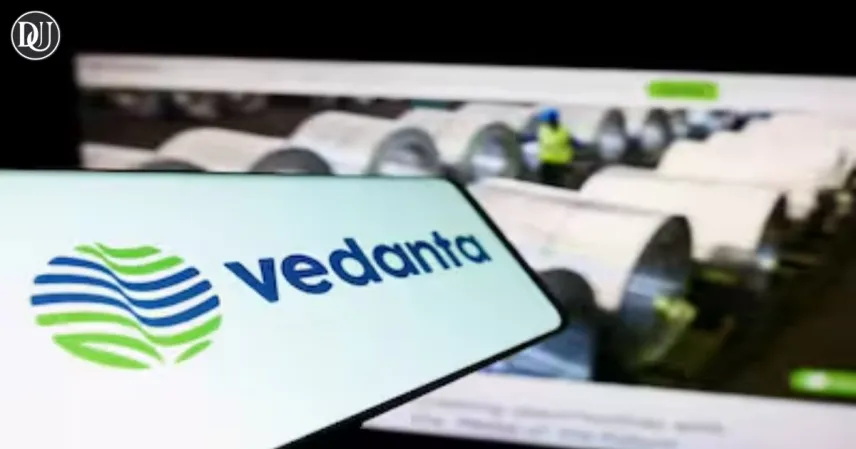The Indian stock market was rocked on July 9 as Vedanta and its associated companies, including Hindustan Zinc, saw a sharp decline in their stock prices. The slide came after Viceroy Research, a US-based short-selling firm, released a damning report alleging that Vedanta’s parent company structure was "Ponzi-like" and heavily reliant on debt-driven operations.
Vedanta share price fell as much as 4.5% during intraday trading before stabilizing slightly. The report has triggered panic among retail investors and raised serious questions about the conglomerate’s financial health.
This news breakdown explores what the Viceroy report alleges, how the market responded, the current status of vedanta share price, and what it could mean for investors going forward.
What Triggered the Fall in Vedanta Share Price?
Viceroy Research's report, published early on July 9, took direct aim at Vedanta Resources Ltd, the London-based parent of Vedanta Ltd. The report accused the company of using complex corporate structures and subsidiaries to mask its growing debt burden.
According to the report, Vedanta Resources’ method of funding includes repeatedly borrowing against cash flows and diverting capital from listed entities like Vedanta Ltd and Hindustan Zinc. Viceroy alleged that this unsustainable borrowing model is similar to a Ponzi scheme.
As a result, the market reacted instantly, with vedanta share price dropping by over 4% and Hindustan Zinc declining nearly 8% in early trade. Investors feared a broader financial issue affecting the group’s entire business structure.
How Did Vedanta Respond?
Vedanta has yet to issue a formal, detailed rebuttal to the Viceroy report as of the latest market session. However, insider sources have suggested that the company is planning a structured response and legal review of the allegations.
A company representative informally stated that Vedanta is committed to corporate transparency and regulatory compliance, and dismissed the claims as speculative attempts to manipulate the market.
Still, the lack of an immediate and full-scale clarification has only added to investor anxiety, putting additional downward pressure on vedanta share price.
Hindustan Zinc Also Caught in the Fallout
Hindustan Zinc, in which Vedanta holds a significant stake, also bore the brunt of investor sentiment. Its stock fell nearly 8% intraday, as investors feared a ripple effect from Vedanta’s financial exposure and structural interlinkages.
The Viceroy report claimed that Vedanta had been extracting dividends from Hindustan Zinc at the cost of future growth, to service parent-level debt. Such claims, if validated, could attract regulatory scrutiny and impact investor confidence in Hindustan Zinc as well.
Debt Concerns and the “Ponzi” Allegation Explained
The core of Viceroy’s argument is that Vedanta’s parent structure is overly reliant on refinancing — taking on new debt to pay off old obligations — and does not generate enough organic cash flow to sustain operations across its many subsidiaries.
The report labels this a “Ponzi-like” setup, where each layer supports the one above it through borrowed funds or dividends, instead of income growth. Although Vedanta has weathered financial storms before, the repeated refinancing and debt restructuring are now under sharp focus.
The vedanta share price, which was already under mild pressure due to general market volatility, has now been pulled further into negative territory due to the reputational damage caused by these allegations.
Market Reactions and Expert Opinions
Market analysts are divided. While some believe the fall in vedanta share price is a knee-jerk reaction, others see deeper structural problems that investors can no longer ignore. Brokerage firms have issued cautious notes, advising retail investors to stay alert and closely monitor developments.
Many institutional investors have started reviewing their exposure to the stock, while others are awaiting an official response from the company before making a decision.
Volume on Vedanta shares was significantly higher than average, indicating widespread panic selling during the early trading session.
Historical Context of Vedanta’s Financial Strategy
Vedanta’s corporate history is marked by ambitious acquisitions, massive capital expenditures, and complex holding structures. The company has diversified across mining, energy, and oil businesses, often taking large loans to fund growth.
Over the years, questions have been raised about dividend policies, inter-corporate loans, and ownership patterns. While not new, the allegations by Viceroy amplify these concerns in the current high-interest rate environment where refinancing becomes more challenging.
This is not the first time a short-seller has attacked an Indian conglomerate, but the impact on vedanta share price shows how sensitive the market has become to corporate governance issues.
What Should Investors Do Now?
With vedanta share price facing downward pressure and no official rebuttal yet released, investors are in a difficult position. Experts suggest that long-term holders may choose to remain invested while keeping a close watch on the company’s debt disclosures, management commentary, and dividend announcements in the upcoming quarterly results.
For short-term investors, avoiding fresh exposure until clarity emerges may be a prudent move.
If Vedanta issues a detailed explanation or refutes the allegations convincingly, the share price could recover. Until then, uncertainty will dominate investor sentiment.
Regulatory Oversight and What Comes Next
If the allegations are taken up by SEBI or other financial regulators, Vedanta may be asked to provide more detailed disclosures and revise its debt management practices. This could improve transparency but may also delay strategic plans or cash flows, impacting the business temporarily.
The vedanta share price in the coming weeks will depend heavily on the company’s communication strategy and the regulators’ stance.
Conclusion
The vedanta share price decline following Viceroy Research’s report has sparked a broader conversation about debt, transparency, and corporate structure within India’s large business houses. With investor confidence shaken, the onus now lies on Vedanta to respond clearly and reassure stakeholders.
The next few days will be crucial as the market watches for the company’s rebuttal and any action by regulatory bodies. Until then, volatility in vedanta share price is likely to persist.










